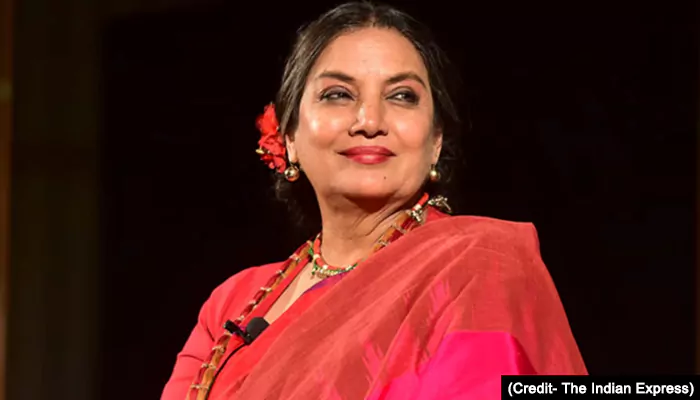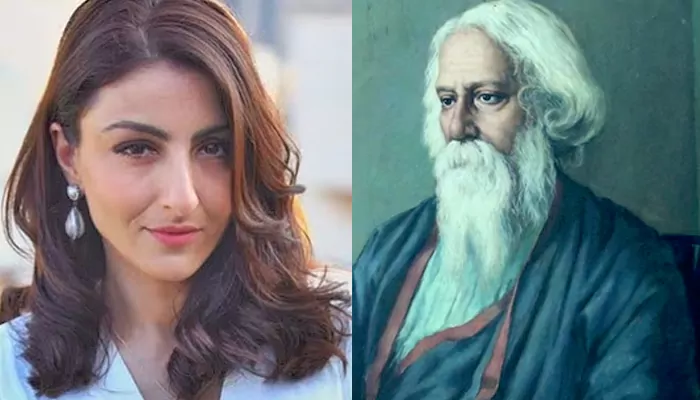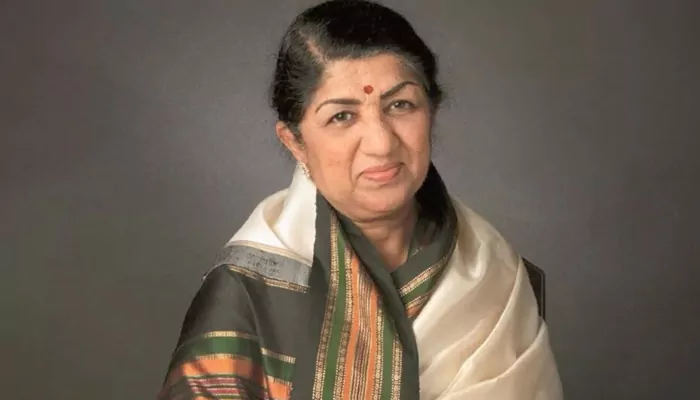Birthday Spotlight: Shabana Azmi—The Actress Who Married Art, Activism, and Stardom
- Sanchari Das
- 3 weeks ago
- 3 minutes read

From powerful roles to powerful causes, her journey continues to inspire
Shabana Azmi’s journey in Indian cinema is unparalleled. She is more than a performer—she is an artist who gave voice to silences and turned the camera into a tool of conscience. Her career is a reminder that acting is not only about glamour but also about the courage to stand for stories that matter. As she celebrates her birthday, it is worth pausing to reflect on the life of a woman who carried cinema into the heart of social change.
Roots in Poetry and Theatre
Born in 1950 in Hyderabad, Shabana was nurtured in a home where words, ideas, and empathy thrived. Her father, Kaifi Azmi, was a revolutionary poet, and her mother, Shaukat Azmi, was a powerful voice in theatre. This atmosphere shaped her sensibility. It taught her that art was not a luxury but a responsibility, a way of engaging with society and its struggles.

Cinema as a Mirror of Society
Her debut in Shyam Benegal’s Ankur in 1974 marked the arrival of a performer who would redefine Indian cinema. Shabana’s roles in Arth, Khandhar, Paar, and Godmother were not just performances—they were portraits of resilience, pain, and human dignity. Winning five National Awards for Best Actress, she carved a space where talent met truth. Her filmography became a bridge between the world of parallel cinema and the mainstream, showing that meaningful stories could still command attention.

The Artist and Her Convictions
Shabana has often said that art must serve as a mirror, reflecting not only beauty but also injustice. Her choices on screen reflected that belief, but so did her life off screen. She took creativity beyond applause, treating it as a vehicle for dialogue. In her worldview, art had the power to challenge prejudice, foster empathy, and demand accountability.
Activism Woven into Life
Off the sets, Shabana Azmi has been equally fearless. She has championed causes ranging from housing rights for the urban poor to raising awareness about HIV/AIDS. Her work with organisations such as Nivara Haq changed the lives of thousands of families in Mumbai. As a parliamentarian, she spoke with clarity on freedom, gender justice, and the dignity of minorities. She embraced the stage of politics and activism with the same honesty she brought to cinema.

Recognition and Respect
Over the years, the world has honoured her with awards that go far beyond cinema. The Padma Shri and Padma Bhushan, lifetime achievement awards, and peace recognitions have all been bestowed upon her. Yet, what makes Shabana’s legacy remarkable is not the collection of trophies but the consistency of her purpose. She never allowed stardom to silence conscience. Instead, she used her visibility to amplify the struggles of others.
An Enduring Flame
To celebrate Shabana Azmi is to celebrate courage with grace. Her story is one of balance—between art and activism, between sensitivity and strength. She has shown generations of actors and audiences that cinema can be a sanctuary of truth, and that an artist can be a citizen first.
On her birthday, we honour her not just for the roles she played, but for the role she continues to play in shaping a more thoughtful, compassionate society. In Shabana Azmi, Indian cinema found not just a star, but a conscience that still shines.











